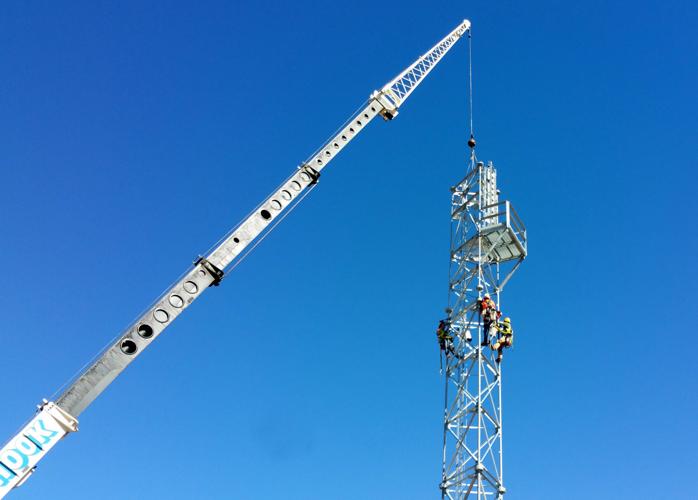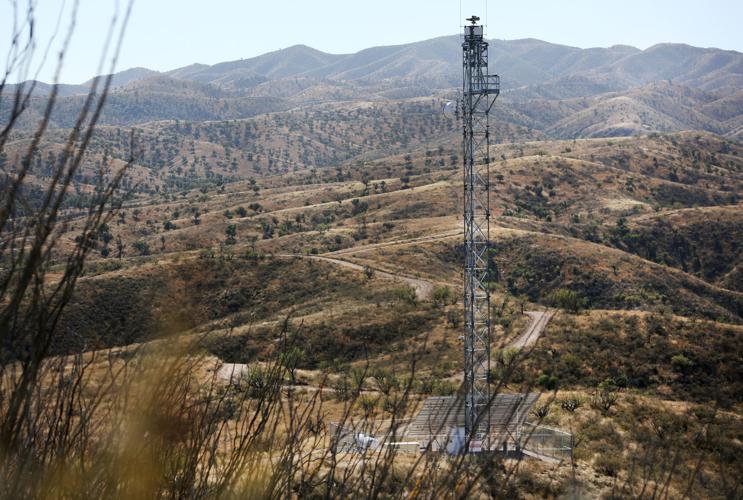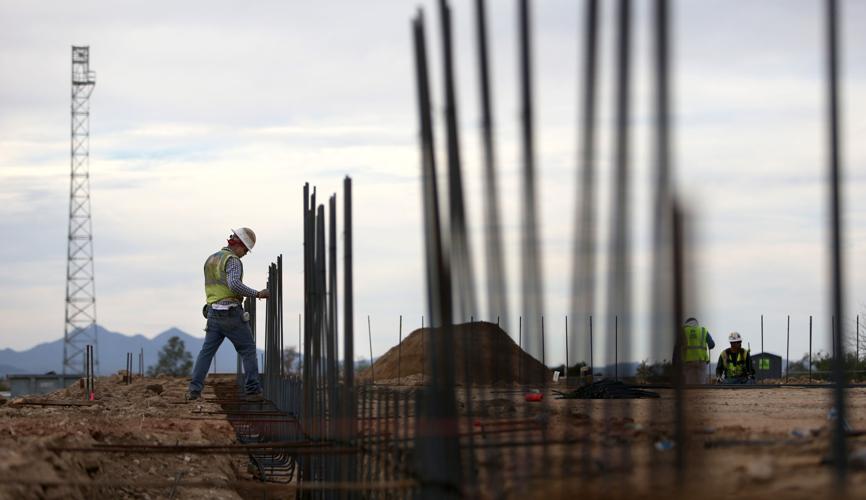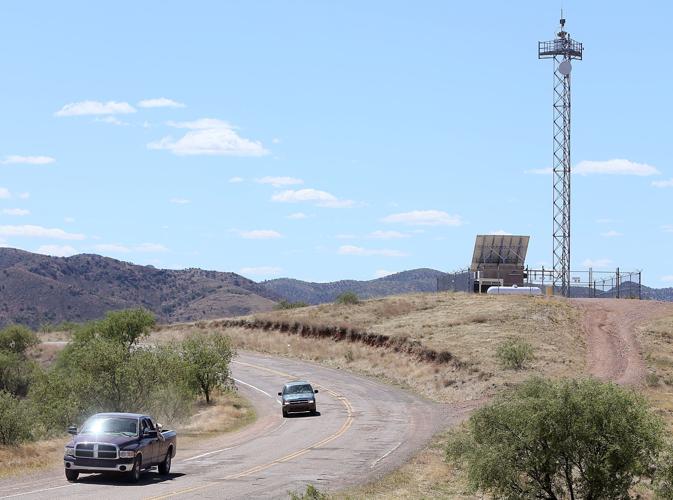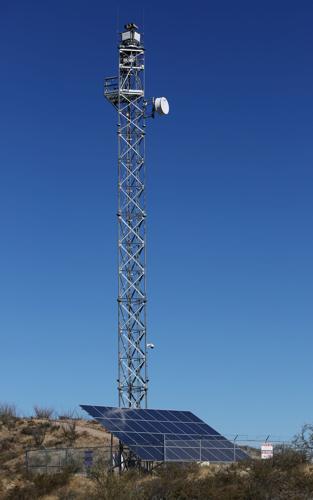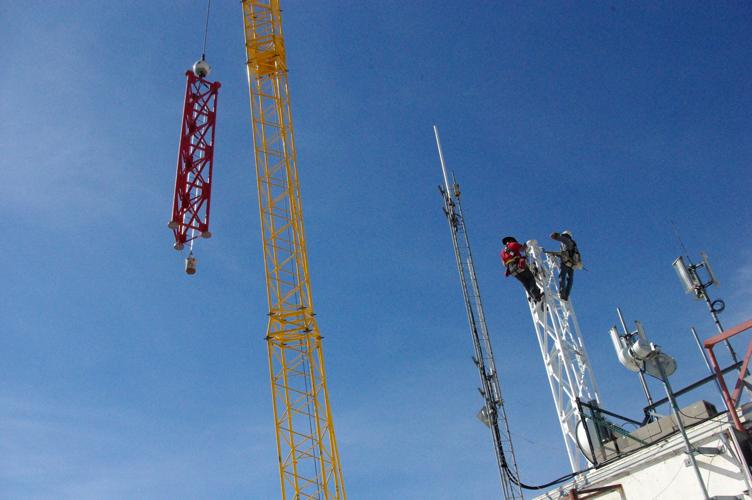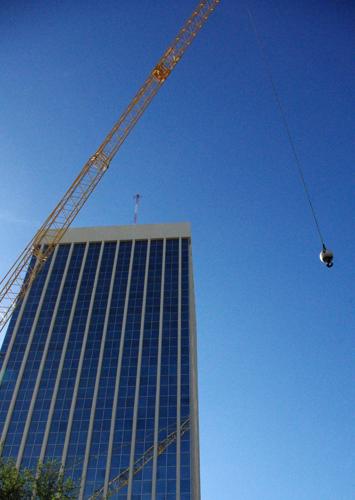Over two decades in business, Tucson-based International Towers Inc. has been part of the digital TV conversion, the evolution of high-speed wireless networks and even advanced surveillance technologies.
Now, the communications tower company is expanding largely to help build new infrastructure for the seemingly unquenchable thirst for wireless broadband.
International Towers is constructing a new headquarters building on Tangerine Road in Marana where it has had a test site in the Marana Technology Campus, a commercial park it is also developing.
When the $3.6 million project is completed this spring, the new facility at 8061 W. Tangerine Road will bring the company’s three local operations together under one roof.
The company’s headquarters offices are now in a building the company owns on West Grant Road, while it also leases space in the Butterfield Business Park.
International Towers works on all kinds of tower-based communications systems and is heavily involved in building and maintaining the fixed surveillance towers along the Arizona-Mexico border.
New wireless networks
But the company’s expansion is being driven largely by an expected flood of demand for wireless communications systems as federal regulators work to free up more wireless spectrum, said International Towers President Doug Gratzer.
Spurred by the need for new wireless bandwidth, the Federal Communications Commission has taken back some of the frequency spectrum formerly used for broadcast TV and is auctioning it off to wireless providers.
“The internet has just taken over, and they’ve run out of spectrum,” said Ed Marue, vice president of International Towers and a partner with Gratzer since the pair merged their tower-services companies to form International Towers in 1996.
Under a controversial channel “repack,” many TV stations, particularly low-power stations and translators, will be forced to move to new frequencies in a process expected to start by late next year.
That means a new wave of business for International Towers, which worked nationally to upgrade infrastructure during the digital TV conversion in the late 1990s.
Now, Gratzer said, the company expects to serve a new class of private high-speed wireless providers who plan to take use the new radio spectrum for private wireless networks for customers, such as oil and gas companies, in remote areas.
Gratzer said International Towers has partnered with Radio Frequency Systems, a major provider of wireless communications equipment and part of Nokia, to provide turnkey systems to wireless operators.
“The actual transition is going to start in late 2017, so this is going to be a big part of our expansion going forward,” he said.
Balancing growth
International Towers’ growth is significant for the Town of Marana as the town tries to build its industrial base, town economic-development director Curtis Woody said, adding that the town is looking to balance its current spurt of new-home construction with new commercial development.
“As we plan for growth in the town, we’ve got to balance that, if we’re not careful we become a bedroom community where everybody lives and then drives somewhere else to work,” Woody said.
International Towers employs about 100 people now, and that number could grow by 50 percent as it ramps up new wireless network business, Marue said. The private company has revenues “approaching $20 million,” Gratzer said.
“The one fly in the ointment is tall-tower crews — there’s a lack of them because there hasn’t been really any activity in that world” in recent years, Gratzer said, noting that the company has the engineering expertise and heavy equipment to ramp up quickly.
International Towers has deep experience in tower construction for government as well as private projects, with government work now representing about half the company’s business, Gratzer said.
Connecting first responders
The company has installed systems on military bases and was the main contractor on the construction of the Pima County Wireless Integrated Network (PCWIN) system, which was completed in 2014 and enables 55 regional public safety and public-service agencies in the region to communicate.
Gratzer said International Towers performs most of its work in-house, including building structures like transmitter sheds and off-grid solar power systems.
The company is a licensed general contractor and employs tradesmen including carpenters and concrete workers, as well as engineers including Marue, who holds several patents on radio tower designs.
That in-house expertise came in handy during the PCWIN buildout, when the company worked on a protected Native American site on Tumamoc Hill. The company removed three towers and upgraded a transmitter building, migrating existing broadcast equipment to a single tower.
Eyes on the border
Another tricky install was the replacement of the communications tower on the Bank of America building in downtown Tucson, which required partially shutting down streets while the company used a crane to replace the tower.
While International Towers prepares for new wireless work, it remains deeply involved in building and maintaining surveillance towers along the Arizona-Mexico border for U.S. Customs and Border Protection.
The local company is subcontractor to Elbit Systems of America, which in 2014 won a $145 million contract to build out the new Integrated Fixed Towers system, which includes about 50 planned towers with high-resolution cameras and sensors.
The IFT program essentially replaces the former Secure Border Initiative Net, or SBINet, a virtual fence built by Boeing Co. that covered 53 miles at a cost of about $1 billion from 2005 to 2011. SBINet was canceled in 2011 after numerous technological problems and criticism over its high cost.
International Towers also is maintaining the existing SBINet towers, which remain operational. Last December, Customs and Border Protection said two systems of 15 fixed towers are still operational in the Tucson Sector.
The company also is involved in two other key border-security programs.
International Tower is upgrading and maintaining monopole towers as part of the Remote Video Surveillance System.
And the local company is working with AT&T to install an upgraded Land Mobile Radio system for Border Patrol agents to use in southwest Arizona with no commercial cellphone service.
“When they don’t have coverage that radio is the only connection they have to call for help, so we feel very good about supporting their mission,” Gratzer said.
Meanwhile, Gratzer said the company is hoping that its buildout at the 24-acre Marana Technology Campus will attract new tech-oriented tenants to the now shovel-ready site.


